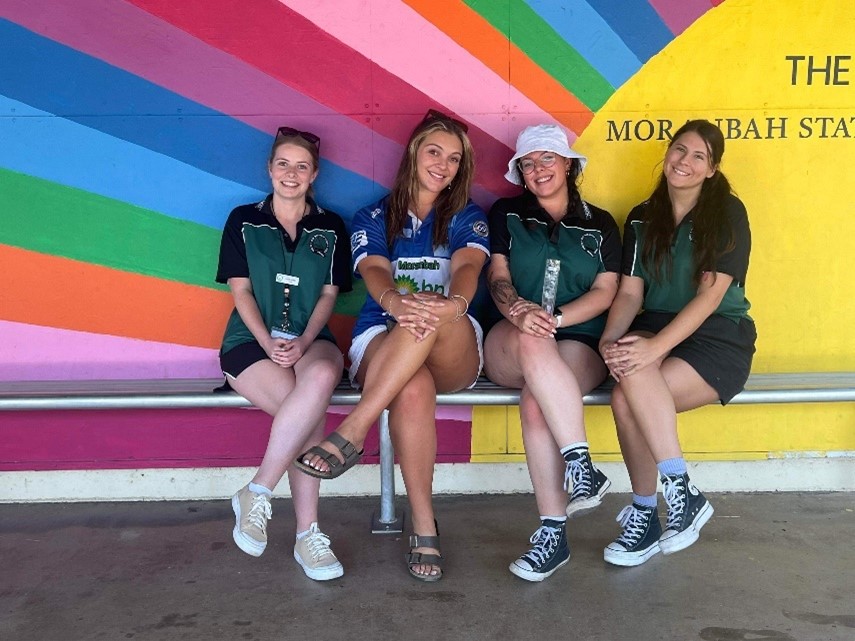
The University of the Sunshine Coast’s (UniSC) School of Education and Tertiary Access (SETA) has a long-standing relationship with TFFF, having delivered the Rural and Remote Education Program for over a decade. The Program is a collaboration with almost 100 state and independent schools and provides bursaries and annual immersion trips for preservice teachers to experience life and teaching in a rural, regional, or remote context.
Attracting and retaining teachers in rural, regional, and remote schools is a persistent challenge, marked by staff shortages and excessive workloads that have dramatically worsened in recent years. The 2017 Independent Review into Regional, Rural, and Remote Education highlighted this as “one of the most persistent challenges on the ‘education agenda’”. Despite nearly a third of teachers working in rural, regional, and remote settings, educating over a quarter of Australia’s students, recruitment and retention remain challenging, particularly for those with teaching experience.
Queensland, in particular, faces a crisis of staff shortages. Research commissioned by the Queensland College of Teachers in 2019 found that one in six teachers leave the profession within four years, with current attrition rates likely higher. A Question on Notice response in Queensland’s Parliament in 2022 revealed statewide teaching vacancies increased by 38 percent from 2021 to 2022, peaking at 1,050 teacher vacancies in May 2022 compared to 760 in the same period in 2021. In the regions, the shortage was more acute: the North Coast region experienced a staggering 573 percent increase in vacancies. Other regions saw similar spikes, with Far North Queensland the only region that saw a decrease in vacancies, from 209 in 2021 to 161 in 2022.
Teachers from rural backgrounds show a greater inclination to seek rural teaching jobs, drawn to the appeal of small-sized classes and the opportunity for personal connections with students and their families. Despite challenges like poorly resourced schools, they value the relationships and sense of community rural teaching positions offer. In a study in the Australian Journal of Education, Professors John Buchanan and Paul Burke of the University of Technology Sydney propose early introduction to rural teaching as a strategic approach.
“Teacher education should prepare pre-service teachers for the circumstances they will encounter in rural schools. Core units of study on the dynamics of rural and remote teaching are called for,” says Professor Buchanan. “Rural educational disadvantage should be prioritised as a matter of social justice.”
“Pre-service teachers who gain experiences in a rural school are more likely to teach in rural schools. Even field trips to rural locations can develop confidence about rural or remote teaching,” says Professor Burke.
The Rural and Remote Education Program assists with planning and the financial hardship associated with rural and remote placements, while Coast to Country trips offer pre-service teachers rich immersion experiences through which students can see the best of rural and remote Queensland community lifestyles. Both program elements aim to support decision making upon graduation that secures high-quality teachers for rural and remote schools.
Since 2010, the TFFF and UniSC partnership has enabled 803 bursary-funded placements. This has resulted in teachers accepting positions in rural, regional, and remote schools and the provision of a quality education to children and families in those areas. These bursaries ensure UniSC can deliver life-changing experiences for students and positive outcomes for rural and remote communities.
The students’ positive experiences during these placements often lead to valuable employment opportunities and help address some of the teacher shortages in rural and remote communities.
The impact these teachers have on rural communities cannot be underestimated, and many of our teachers say they get so much in return from the children, families and communities they work in.
- Professor Helen Bartlett, UniSC Vice-Chancellor and President
Financial support and rich immersion experiences provided by UniSC's Rural and Remote Education Program during pre-service teachers' placements have led to valuable employment opportunities. These teachers have a significant impact on rural communities, and many of them have continued to teach in remote locations.
Bursary recipients Denby Batista and Raquel Remigio-Smith both participated in a Coast to Country trip before going on to placements at rural schools. Denby described her time in Blackwater, near Rockhampton, as incredibly memorable.
“[Blackwater State School] welcomed us with open arms and warmth and care. The students that we worked with offered me a whole new perspective on education and the varying needs of students across Queensland.”
Raquel’s placement took place in Moranbah, near Mackay, in “an environment which radiates warmth and inclusivity.”
“The four weeks I spent there were irreplaceable. It showed me the profound impact that quality education can have on the futures of individuals and communities in rural and remote regions of Queensland.”

Denby and Raquel will both return to their respective schools for their final practical experience this year.
Past recipient Blaire Thompson taught in Innisfail, Far North Queensland, an experience that she says was unique.
“I find country kids are more open to forming positive relationships with their teachers, and in doing so we build a sense of community, which has probably been the best part.”
"I never thought I'd be so passionate about it, but coming up here has definitely opened my eyes to how impactful teaching can be, especially for rural students.”
Fellow past recipient Maxine Kirby’s first remote placement occurred in Dysart, near Mackay, where she taught for four years before transferring to Gindie, near Emerald. Here, she had the opportunity to step into a leadership role, serving as the school’s principal from 2019-2020.
Maxine received a Tim Fairfax Family Foundation bursary while in her final year of university, and says it made a “huge difference.”
“It gives people who have that curiosity the push to give it a go.”
Read more about Blaire and Maxine’s experiences here.



Cover photo courtesy of Marie Dunn. All photos courtesy of the University of the Sunshine Coast.
The University of the Sunshine Coast's School of Education and Tertiary Access is supported through the Leadership stream.

